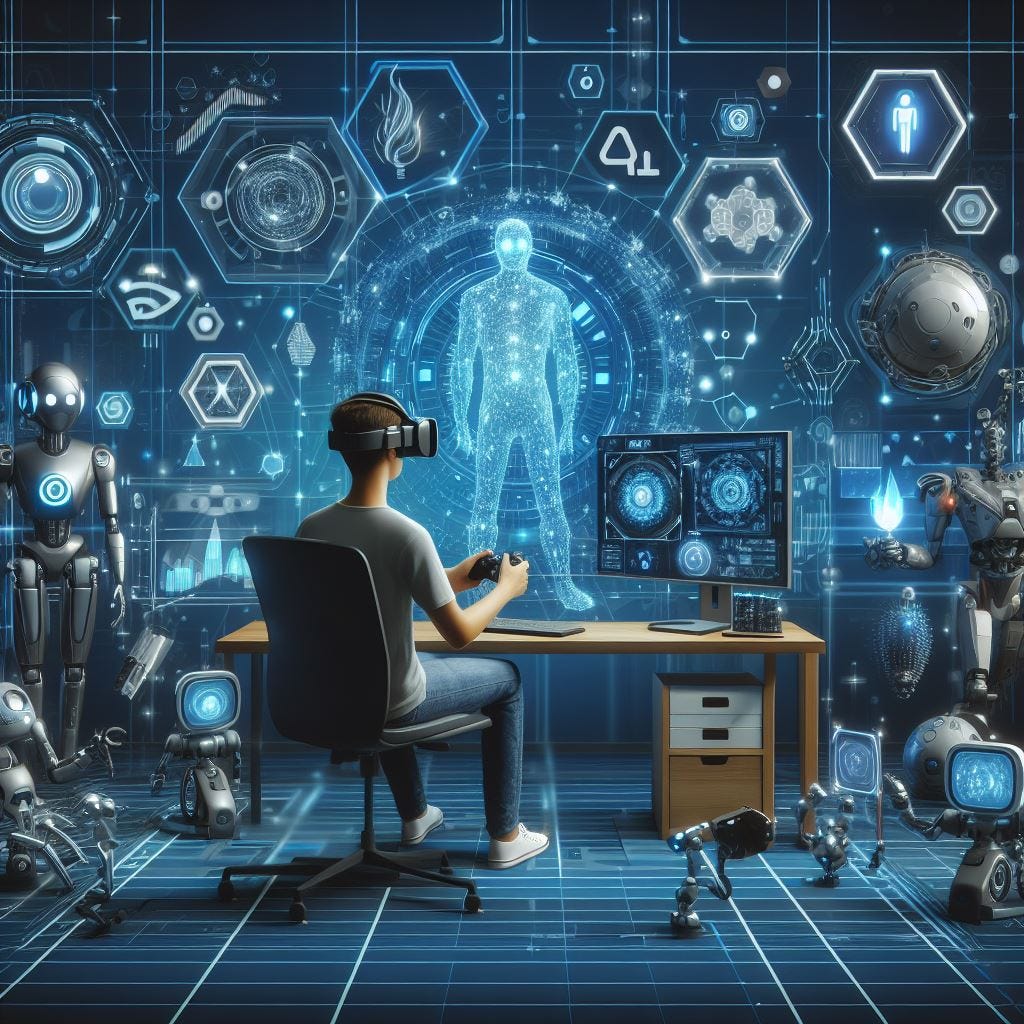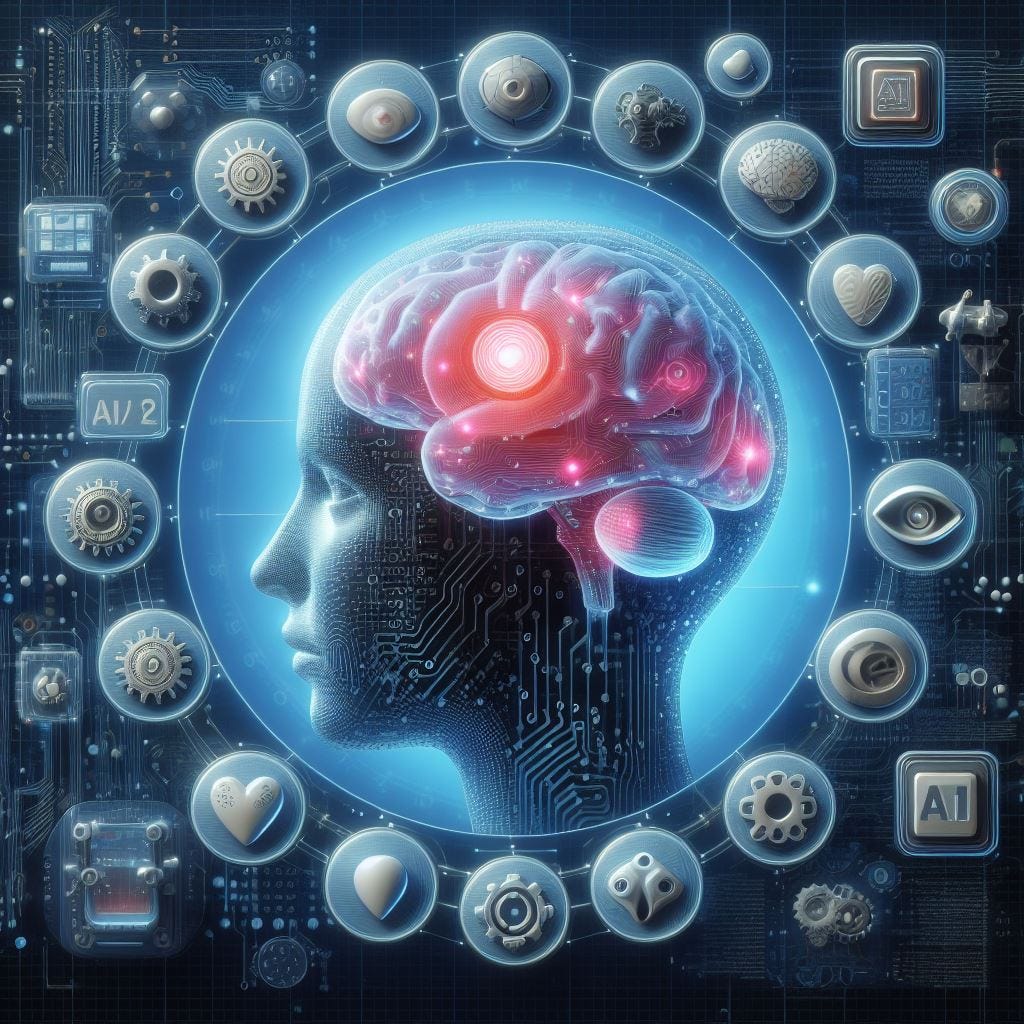AI and Mind-Reading Technologies: Advancing Hotels
How Emerging AI is Revolutionizing Revenue, Conversations, Education, and Assistive Communication
AI-Enabled Attribute-Based Shopping to Boost Hotel Revenue
- AI and machine learning can optimize attribute-based shopping (ABS) for hotels to maximize revenue while minimizing booking abandonment
- By A/B testing shopping sequences, pre-arrival offers, and in-stay apps, AI learns ideal attribute combinations, timing, messaging to increase guest conversion
- AI delivers insights to guide future room upgrades and property renovations for maximum ROI
- Though compromising slightly on occupancy, personalized ABS offers can raise revenue per room up to 10% without capital investments
What's Coming for ChatGPT in 2024
- Better reasoning likely as research shows current ChatGPT models have declined, though methods exist to improve them
- ChatGPT 5 probable to compete with Google's Gemini model recently launched
- Upgraded voice mode would enable more effective hands-free conversations
- New "GPT stores" referenced that could provide personalized AIs using memory to learn and give better responses
- Additional potential upgrades: less rejection of politically incorrect questions, future video capabilities, higher rate limits, more accurate browsing
- Surprisingly mentioned open-sourcing ChatGPT models, though unlikely as OpenAI keeps proprietary
WRITESONIC IS ONE OF THE BEST ARTIFICIAL INTELLIGENCE-POWERED COPYWRITING GPT-3 TOOLS.
Camp Integem Launches Innovative AI & AR Game Design Classes
- Programs teach holographic AR coding, AI integration, 3D modeling/animation, game design over 2-3 weeks
- Offerings tailored by age from grades K-2 up to high school
- While younger students learn AR basics and interactive storytelling, high schoolers study advanced topics like conversational AI characters and Python
- Blending outdoor activities with hands-on tech skills; accredited courses require no prior coding knowledge
- Focuses on sparking creativity through emerging technologies
- By crafting own games with responsive AI elements, students gain critical thinking and problem solving skills
Mind-Reading Technology Converts Brain Activity into Text
- Portable DeWave system uses EEG cap and AI to decode silent thoughts into text
- Could enable communication for those unable to speak due to injury/illness
- Allows seamless human-computer interaction for controlling devices hands-free
- More accessible than previous invasive brain signal translation methods needing surgery
- In tests, accurately translated passages read silently by participants into text without eye-tracking
- Better matched verbs than nouns; sometimes substituted synonyms
- Aims to improve 40% translation accuracy score to be on par with speech recognition
AI-Enabled Attribute-Based Shopping to Boost Hotel Revenue
While attribute-based shopping (ABS) for hotels - allowing guests to customize rooms, amenities, and services - could increase revenues, it faces challenges. Guests experience choice paralysis and hotels lose flexibility for groups and VIPs. AI and machine learning can optimize ABS to maximize revenue while minimizing booking abandonment. By A/B testing shopping sequences, pre-arrival offers, and in-stay apps, AI learns ideal attribute combinations, timing, messaging for guest conversion. Though it takes time, AI-enabled ABS should start in 2024 to leverage big data patterns. If current platforms don't record guest interactions for testing, revenue is lost. With the right systems, AI-powered ABS can increase net revenues up to 10 percent without capital investments. Though compromising slightly on occupancy, personalized offers raise revenue per room. AI delivers insights to guide future room upgrades and property renovations for maximum ROI.
What's Coming for ChatGPT in 2024
The video discusses potential upcoming features and improvements for ChatGPT in 2024 based on a Twitter thread by Sam Altman. Better reasoning is likely as research shows current models have gotten worse, though methods exist to improve them. ChatGPT 5 is also probable to compete with Google's new Gemini model. An upgraded voice mode would be highly useful, as the current version allows hands-free conversations in multiple languages.
New "GPT stores" providing personalized AIs are referenced. These could use memory to learn from conversations, carrying information between chats to give more relevant, helpful responses. Users may be able to manage what the AI remembers. Signing in with OpenAI accounts could also enable more applications leveraging ChatGPT.
Additional speculated upgrades include less rejection of politically insensitive questions, potential future video capabilities suggested by discovered OpenAI webpages, higher rate limits so conversations aren't cut off, and more accurate browsing. Surprisingly, open-sourcing was mentioned though unlikely as OpenAI keeps models proprietary.
Overall, Altman aims to deliver on many requested features like better reasoning and personalization. But additional unmentioned capabilities are likely coming that could further improve ChatGPT's abilities. Between combating other models and progress in areas like video AI, 2024 promises major advancements towards increasingly useful conversational agents.
Camp Integem Launches Innovative AI & AR Game Design Classes
Camp Integem has introduced new AI and AR game design classes for K-12 students. The programs teach holographic AR coding, AI integration, 3D modeling, animation, and game design over 2-3 week sessions. Offerings are tailored by age from grades K-2 up to high school. While younger students learn AR basics and interactive storytelling, high schoolers dive into advanced topics like conversational AI characters and Python. Blending outdoor activities with hands-on tech skills, the accredited courses require no prior coding knowledge. Camp Integem focuses on sparking creativity through emerging technologies. By crafting their own games with responsive AI elements, students gain critical thinking abilities, problem-solving skills, and understanding of real-world applications while exploring self-expression.
Mind-Reading Technology Converts Brain Activity into Text
Researchers at the University of Technology Sydney have developed DeWave, a portable mind-reading system that decodes silent thoughts and converts them into text. It uses an EEG cap to record electrical brain signals, then an AI model segments the waves and translates them into words and sentences after learning from large amounts of EEG data.
DeWave could enable communication for those unable to speak due to injury or illness. It also allows seamless human-computer interaction for controlling devices hands-free. The technology is more accessible than previous invasive brain signal translation methods requiring surgery.
In tests, DeWave accurately translated passages read silently by participants into text, even without eye-tracking aids. It better matched verbs than nouns, sometimes substituting synonyms. The researchers aim to improve the 40% translation accuracy score to be on par with speech recognition. This breakthrough technology has positive implications for assistive communication, neural decoding advances, and brain-computer interfacing.








